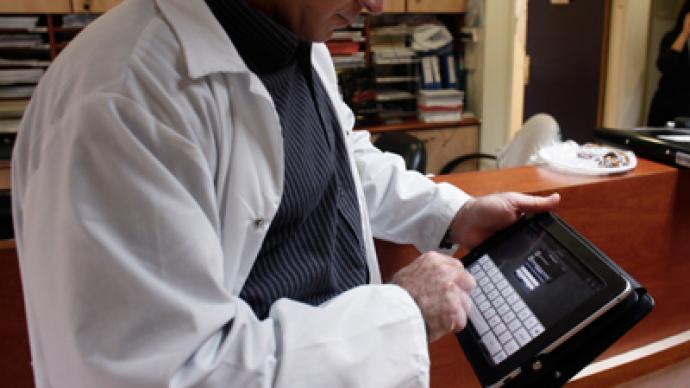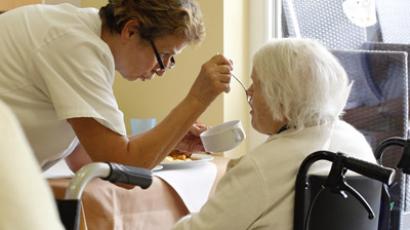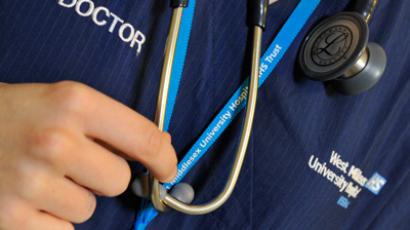Skype chats with UK doctors to rescue budget but endanger lives?

You’ll no longer need to leave your house to visit the doctor in the UK. Video chats will soon replace face-to-face appointments in a bid to save nearly $5 billion in healthcare costs, a report claims. Critics warn the move may put lives at risk.
The new system of ‘virtual clinics’ was reportedly created as a cost cutting measure, since one-third of medical visits do not necessarily require an in-person appointment with a doctor.The system was imported from India, and is being pushed through by UK Health Secretary Jeremy Hunt. Health Minister Dan Poulter is another supporter of the project. He argues that the new system will “almost immediately” save the National Health Service (NHS) $4.6 billion, and make it easier for patients to talk to their doctors.The Sunday Express obtained a copy of the NHS’ ‘Digital First’ report, which also revealed other proposed technological advances at UK clinics: Supplying nurses in rural areas with iPads; online assessments; development of phone apps to access lab reports and health records; sending out test results via text messages.The NHS currently operates with a funding shortfall of $32 billion; the ‘virtual clinics’ project aims to fill that gap by increasing efficiency.Critics argue that the system will have the opposite effect, leaving less tech-savvy people, including the elderly, unable to contact their physicians. Shadow Health Secretary Andy Burnham told the Sunday Express that the system is “dangerous,” and that cutting the number of appointments would ruin doctor-patient trust. “Many people of all ages still prefer human contact,” Age UK Director Michelle Mitchell said, adding that personal contact “gives the medical professional the chance to recognize health issues that may not be obvious from a distance.”But during a parliamentary debate, Poulter maintained that the use of mobile technology can help prevent people from becoming so unwell that they need to be admitted to the hospital.“15 million people with long-term conditions accounted for 70 percent of all in-patient beds and many such hospital stays could be avoided through the use of mobile technologies,” Poulter said.“We need to harness more modern types of technology such as telehealth and mobile technologies to support people better in their own homes and to drive down the cost of care,” he added. “Patients who are unwell and need to see their GP will still always have quality face-to-face time with them.”














